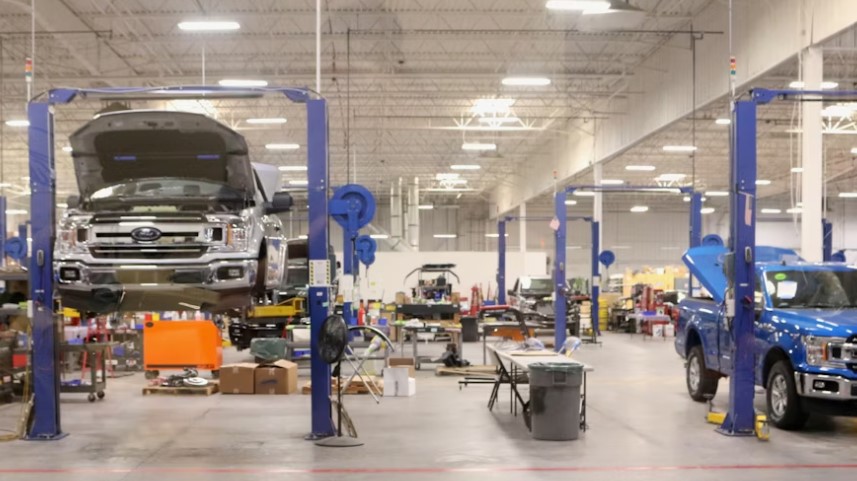Today’s cars are equipped with more technology than ever—onboard computers, electronic sensors, and sophisticated electronic systems. That leaves auto repair shops unable to count simply on hands-on know-how. They must get current skills and more intelligent tools to match the evolving requirements.
From engine diagnostics to error code handling, technicians are now required to know machines as well as software. It’s for this reason that many shops are opting to invest in technical schools and digital products. Not only to repair cars quicker, but in order to remain competitive in an ever-changing industry.
Let’s keep reading and find out more!
Why Modern Vehicles Need Smarter Repairs
Modern cars are highly dependent on technology. Computers control systems such as fuel injection, real-time engine monitoring, and automatic braking. Therefore, when things fail, the problem isn’t always clear.
Consider the P0300 code, for instance. It is an engine trouble code that indicates a multiple-cylinder or random misfire. Sounds simple, right? Well, in real life, the causes can be as varied as non-functional spark plugs to vacuum leaks or even electrical issues in the automobile itself. Without the right equipment and training, finding the actual issue can cost time and money.
Fixing Cars Faster, Smarter, and with Fewer Mistakes
Not all error codes report the entire story. Consider the P0300 code, for instance, it indicates a random or multiple cylinder misfire, but it does not indicate specifically why it is occurring. It may be a spark plug that is worn, a bad coil, or even a vacuum leak.
Even seasoned technicians will hesitate here. There are so many potential things to do, it’s natural to search for a detailed guide or double-check with a reliable source. Many experts check step-by-step guides on how to fix P0300 simply to ensure they don’t miss anything.
In addition to that, most modern stores use smart diagnostic software. They scan the car’s systems, extract real-time data, and in many cases, pinpoint the problem within a couple of minutes. When used in conjunction with technical schooling, they eliminate the process of guesswork and allow vehicles to return to the road sooner.
Better Tools Mean Better Communication with Customers
Repair shops are no longer just about fixing problems. They’re also about explaining them. Many auto shops now send digital inspection reports, complete with photos and explanations. This helps customers see the issue and understand what needs to be done.
Instead of having to call or visit the shop, people can review the report on their phone, approve the repair, and get updates, all without leaving their home. This saves time and creates a smoother experience for both sides.
More importantly, you have to build trust, and this helps. Customers appreciate transparency, especially when it comes to spending on car repairs.
Why Training Is More Important Than Ever
Advanced tools are only useful if people know how to use them. That’s why shops are focusing just as much on training as they are on tech.
Many offer in-house learning sessions or encourage technicians to earn certifications in areas like hybrid systems, EV repair, and advanced diagnostics. This keeps employees updated and confident, especially as new types of vehicles hit the road.
It also boosts morale. When technicians feel supported and skilled, they’re more likely to stay with the company long-term. That means shops don’t just become more capable, they become more stable too.
Planning Ahead for the Cars of Tomorrow
Electric vehicles and smart features like adaptive cruise control are no longer rare. They’re quickly becoming the norm. Shops that aren’t preparing now risk being left behind.
Some are already setting up charging stations, training their staff for battery repairs, and learning how to handle ADAS calibrations. These steps aren’t just about keeping up, they’re about being ready to handle whatever comes next.
Customers are also becoming more informed. They’re looking for shops that know how to deal with modern tech and can explain things clearly. That’s why training and tools are no longer optional; they’re essential.
What’s in It for the Auto Shops?
Making these changes isn’t always cheap or easy. But for shops that do invest in the right tools and training, the payoff is real.
They’re seeing:
- Quicker repairs with fewer errors
- Happier customers who come back
- Better online reviews and word-of-mouth
- Technicians who stay longer and feel valued
- A strong reputation for handling modern vehicles
All of this adds up to one thing: business growth.
Concluding Thoughts
Auto repair is no longer just about tools and torque. It’s about knowing how to handle the codes, the sensors, and the systems behind today’s vehicles. And it’s about explaining all of that in a way customers understand and trust.
A simple misfire used to mean hours of guesswork. Now, with trained staff and smart tech, it can be resolved faster, more accurately, and with fewer headaches. Auto shops that choose to evolve are showing everyone else how it’s done. They’re proving that a mix of human skill and digital precision isn’t just the future of car repair, it’s already here.


